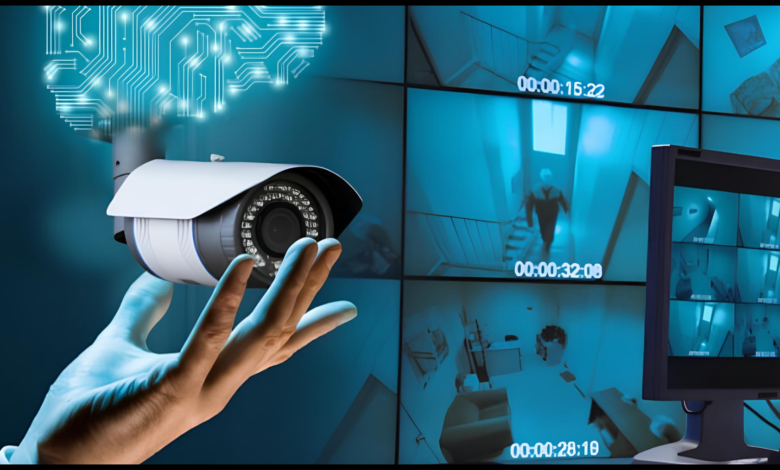Mobile App
AI-Powered Camera: The Future of Smart Photography

The world of digital photography is changing fast. Artificial intelligence (AI) is now part of camera systems. This new tech is set to change how we take, edit, and share photos. It's making photography smarter, more user-friendly, and more powerful than ever. AI cameras are bringing new chances for all photographers. They use machine learning to understand scenes and improve photos. They can adjust settings and highlight important parts of a photo. This makes taking amazing photos easier for everyone.
Key Takeaways
- AI-powered cameras are revolutionizing the future of photography by seamlessly integrating artificial intelligence into image capture and processing.
- These advanced camera systems leverage machine learning and neural networks to analyze scenes, optimize settings, and intelligently enhance image quality.
- The integration of AI in camera technology is empowering both amateur and professional photographers to capture stunning, professional-grade images with ease.
- AI-powered cameras are automating tasks like exposure and white balance adjustment, as well as detecting and highlighting key subjects in a scene.
- The future of photography is becoming smarter, more intuitive, and more powerful with the rise of AI-powered camera technology.
Understanding AI-Powered Camera Technology
AI has changed photography, making cameras smarter than ever. It uses machine learning to improve how we take and process photos.Machine Learning in Modern Photography
AI cameras use machine learning to get better at taking photos. They learn from millions of pictures, finding patterns to set the best camera settings.Neural Networks and Image Processing
Neural networks are key in AI cameras. They work like the brain, quickly and accurately processing images. This helps cameras adjust to their surroundings, taking amazing photos.Real-time Scene Optimization
AI cameras can adjust settings on the fly. They change exposure, white balance, and focus based on the scene. This means every photo looks great, even in tough lighting.| Technology | Key Capabilities |
|---|---|
| Machine Learning Algorithms | Analyze vast photographic data to improve image quality and capture |
| Neural Networks | Enhance image processing capabilities through deep learning |
| Real-time Scene Optimization | Automatically adjust camera settings for optimal results in diverse environments |
Benefits of AI-Powered Camera Systems
Artificial intelligence (AI) has changed camera tech for the better. It helps photographers of all levels. AI cameras offer automated settings and smart features, making photo-taking easier and better. AI cameras can automatically adjust to different shooting situations. Automated settings for things like exposure and focus help beginners get great photos. They don't need to tweak everything manually. AI cameras also have intelligent features that make photos look amazing. They use advanced algorithms to improve image quality. This includes recognizing faces, landscapes, and low-light scenes, and adjusting the photo for the best look.- Automated scene detection for optimal settings
- Intelligent exposure compensation and white balance
- Smart composition assistance for better framing and balance
- Enhanced image quality through noise reduction and sharpening
"AI-powered cameras have truly transformed the way I approach my photography. The intelligent features and automated settings have given me the freedom to experiment and capture my vision with more consistency and precision."
Conclusion
The future of photography is closely tied to AI-powered camera tech. These systems have changed how we take, edit, and improve photos. They've brought about a new era of smart photography. AI has made scene detection and real-time optimization possible. This has greatly improved our photo-taking experience. Looking forward, AI cameras will keep getting better. This means more creative freedom and new ways to express ourselves through photos. Photographers of all levels should dive into this technology to improve their skills. The future of photography looks bright, with AI cameras leading the way. The mix of human creativity and AI is exciting. It opens up endless possibilities for smart photography. Whether you're a pro or just starting out, AI cameras are changing photography. They're helping create a new wave of visual storytellers.FAQ
What is an AI-powered camera?
An AI-powered camera uses advanced technology to improve your photos. It has smart features for both new and experienced photographers. These cameras adjust settings and enhance image quality automatically.
How do AI-powered cameras work?
These cameras use machine learning to understand and adjust photos. They analyze data to set the right camera settings and improve image quality. This helps with scene detection and composition in real-time.
What are the benefits of using an AI-powered camera?
AI cameras offer better image quality and smart features. They help in low-light conditions and reduce noise. This makes photography more enjoyable and the results better.
How do AI-powered cameras enhance image quality?
AI cameras analyze scenes and adjust settings for the best photos. They fine-tune exposure and white balance in real-time. This ensures high-quality images, even in tough lighting.
What intelligent features do AI-powered cameras offer?
AI cameras have features like scene detection and composition help. They also adjust exposure for better photos. These tools make it easier for all photographers to take great shots.
How do AI-powered cameras impact the future of photography?
AI cameras are changing photography with advanced technology. They bring a new era of image processing and interaction. This technology will keep improving, leading to more advanced camera features.




